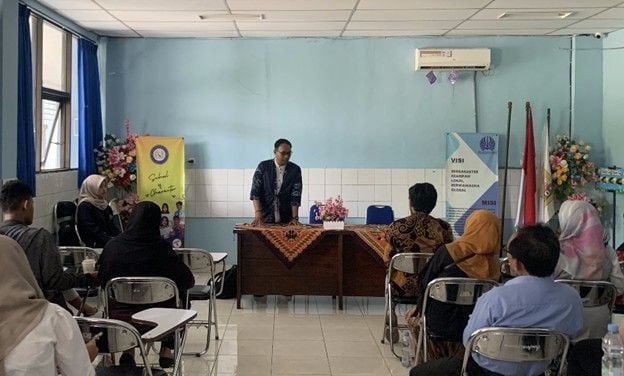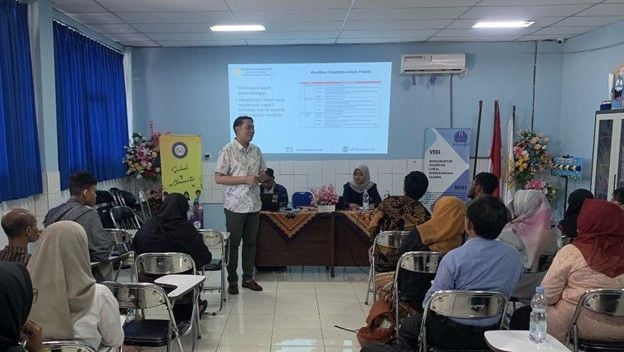
The Chair of PKM delivered remarks and reinforcement in the early detection classification training for students with disabilities at the UNESA Labschool.
Unesa.ac.id. SURABAYA—Surabaya State University (UNESA) reiterates its commitment to supporting inclusive education by holding training entitled "Classification of Early Detection of Students with Disabilities."
This community service activity or PKM was held on September 21 2024 at Unesa 3 Lidah Wetan Labschool Middle School Hall, attended by dozens of teachers from kindergarten to high school and vocational school levels.
The Chair of PKM, Dimas Avian Maulana said that the training with the theme 'Strengthening Diversity-Based Learning' aims to increase teacher sensitivity in detecting the needs of children with special needs.
“We want teachers are more sensitive to the needs of students, including those with disabilities. "With appropriate early detection, we hope that all children can develop optimally according to their potential," explained Dimas.
As a resource person, Muhammad Nurul Ashar, UNESA inclusive education lecturer, explained the importance of recognizing children's potential through early detection. He provided strategies for how teachers can observe children's behavior and development.

Training resource persons spoke about strategies that teachers can use to detect the needs of students, including those with disabilities.
Apart from that, also about how to carry out evaluations with appropriate measuring tools, and coordinate with experts such as psychologists or therapists to ensure appropriate interventions.
During the training, the atmosphere feels lively with active interaction between participants and resource persons. A teacher shares his experience in educating students with ADHD (Attention Deficit Hyperactivity Disorder), which then gets responses in the form of suggestions from the resource person.
"Structured learning methods, relevant physical activity, and positive reinforcement such as praise for behavior "It can really help children with ADHD," said Nurul Ashar.
Apart from sharing experiences, participants were also invited to note changes in students' development periodically and understand their learning patterns. It is hoped that this approach will be able to create a more friendly and inclusive learning environment.
This training received an enthusiastic response from the participants. "We gained a lot of new insights that we can immediately put into practice in class," said one of the participants.[*]
***
Author and photo: Ainu Putri/PKM Team< /p>
Curator: Fatimah Najmus Shofa (FBS)
Editor: @zam*
Share It On:






